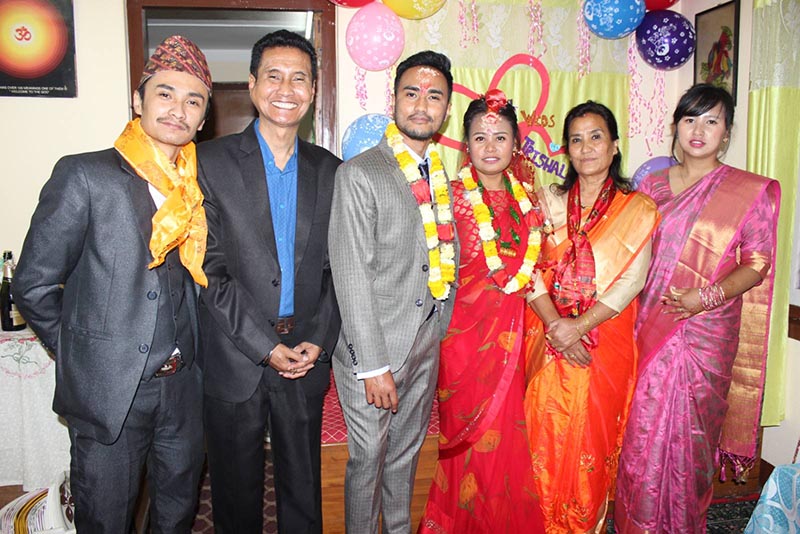Life goes on, albeit a little differently
Kathmandu
Furpi Tamang was born on March 19 at Prasuti Griha, Thapathali, Kathmandu. The COVID-19 lockdown came into effect four days after her birth. Her mother Kalpana, who was with her husband and mother-in-law at the hospital, recalls “not being able to go out and eat in the canteen” in such a situation. On the way to deliver baby clothes from Kapan, Kalpana’s brother-in-law Jiwan was apprehended by the police for breaking lockdown rules and his motorbike was seized. The Tamangs had to stay in the hospital for 22 days as Furpi caught cold among other complications.
Life under the lockdown has not been normal to say the least. Along with life experiences, different ceremonies and festivals have also not been the same during the lockdown.
Singer Vivek Lama married Trishala Pradhan on May 7 in front of 15-20 close family members. They were supposed to go to Dharan for a grand wedding ceremony, but it was not possible due to lockdown. “Since it was good saait (auspicious time) and Buddha Jayanti, we didn’t want to miss it,” shares Lama. They completed the ritual of sindoor-pote at a nearby temple followed by lunch at home. His only disappointment is that “we couldn’t invite our colleagues and friends” to the wedding.
May 7 was also the day of Ubhauli Parwa, which marks the beginning of the farming season. But “we Kirantis — nature, ancestor (pitri) and land (bhumi) worshippers — didn’t celebrate it due to the lockdown,” shares music
composer Shantiram Rai.
Ubhauli, during which prayers for good grains and crops are offered, is observed with much fun and fervour around the Valley. As per Rai, prayers were offered at the place of worship in Hattiban, Lalitpur but the celebration in the form of song and dance (Sakela Shili) in the Kathmandu Valley was halted which he believes is a natural thing to do now.
The holy month of fasting Ramadan is also being observed by the Muslim community. And the lockdown has brought a few changes in how it is being observed, some in a good way observes Faija Parween, Founder of Open Space Network. She shares there used to be family gatherings, sometimes going to each other’s homes to break the fast which is not possible now. Moreover, “we used to be quite busy and didn’t get time to read namaz (prayer) on time ...”
However, the lockdown has brought seriousness to the entire observation of Ramadan. “We are all at home, reading namaz five times and eating food with family members,” she adds.
Christians have not had the chance to attend church for weekly service. So, services are being live-streamed. It was the same during the Holy Week (from April 5-12 this year) leading to Good Friday and Easter Sunday commemorating the death and resurrection of Jesus Christ0.
Agnes Dewan, who attends the Assumption Church, Dhobighat, too joined the online service during the Holy Week. “It was spiritual,” the 66-year-old shares of her experience. Holy Week in her church is a big affair where the church is packed with people attending the services. Listening to Bishop Paul Simick online, “I was very attentive as there
was no distraction from other people”.
Death is the one certainty of life and lockdown or not, there will be births and deaths. Bir Bahadur Rajak lost his 68-year-old father on April 27. He shares the lockdown didn’t create any obstacle regarding the last rites of his father. The ward where his father had lived provided them a vehicle to take the body for last rites at Teku. “We got the resources needed for the funeral from our regular shop in Mangal Bazaar — they provided us everything despite being shut due to the lockdown,” he adds.






